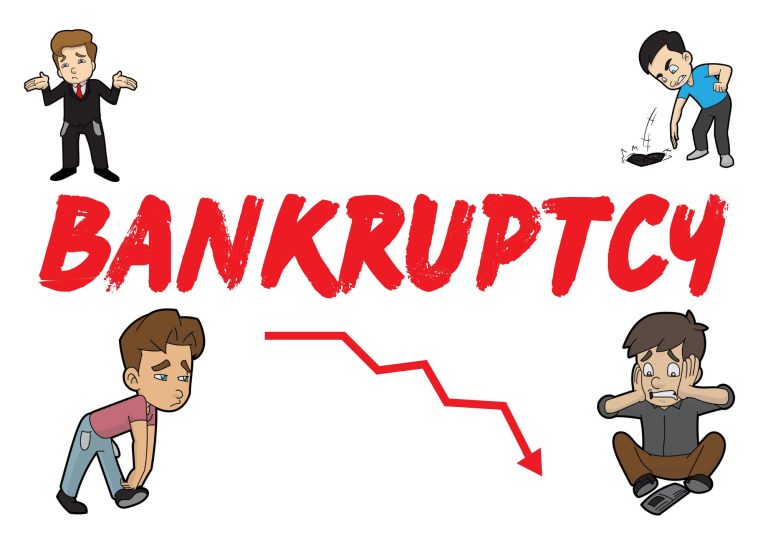Bankruptcy is a legal procedure that assists individuals or businesses in declaring they are unable to pay their debts. They may be required to repay some of their debts. In many countries, bankruptcy is decided by a court order, usually started by the person in debt.
When someone is unable to pay back a loan or borrowed money, they are considered to be bankrupt. Declaring bankruptcy is a significant legal procedure that can affect your finances for up to a decade. We will discuss the fundamental aspects of bankruptcy.
Why do people file for bankruptcy?
Bankruptcy is a legal option that helps people and businesses struggling with money problems. It allows them to get rid of or rearrange their debts if they cannot afford to pay them. You file for bankruptcy when you have overwhelming financial challenges due to debt, job loss, or unexpected medical expenses.
Bankruptcy can be a complicated process that involves working with lawyers to ensure everything goes smoothly. There are specific rules and regulations that need to be followed in order to determine if a person or company is unable to repay their debts and needs assistance in getting out of debt. Meeting these requirements is necessary for filing for bankruptcy.
What are the causes that result in bankruptcy?
- Many people end up with too much debt because they spend too much or borrow money at high interest rates. This causes them to struggle to manage their finances and become stressed about their money situation.
- Financial instability may occur due to unexpected job loss, a decrease in income, or expensive medical bills. As a result, individuals and businesses find it difficult to pay their bills without a steady source of money. This leads many people and families to consider filing for bankruptcy as a way to seek financial help.
What are the consequences of filing for bankruptcy?
- The main impact is losing your property. When you declare bankruptcy, you may need to sell your belongings to pay back creditors. This could include giving up items like real estate, vehicles, jewelry, and furniture that are not essential.
- If you agreed to be a co-signer on a loan for someone who then declared bankruptcy, you would be on the hook for a portion of the debt.
- Filing for bankruptcy negatively affects your credit score. Getting loans or credit becomes challenging after bankruptcy. Lenders will see you as a risky borrower. In the future, you may be offered loans with higher interest rates and less favorable conditions.
- Deciding to declare a company bankrupt can have severe outcomes for those involved. This may lead to job cuts, disruptions in supply chains, and financial losses for shareholders, partners, and investors. Different types of businesses like sole proprietorships, partnerships, and corporations encounter unique issues related to bankruptcy based on factors such as assets, revenue streams, and ownership structures. It can be challenging to find a balance that satisfies the needs of all parties involved.
- Your feelings of identity, safety, and value are often closely connected to your financial situation. Losing money can feel like a personal blow to your sense of self, self-worth, and confidence. You may experience a real or perceived decrease in personal power either before or after declaring bankruptcy.
Tips for avoiding bankruptcy
Make a budget and handle your money wisely. Planning your budget well will help you control your spending and avoid getting into too much debt. It will also help you live within your income.
Save money for unexpected costs. Have an emergency fund as a safety net for your finances. It can help you pay for unexpected expenses and reduce the risk of going into debt during emergencies.
Get advice from financial experts: Financial advisers and credit counselors can help you handle your debt and deal with tough financial situations.

Is filing for bankruptcy a good option?
Unfortunately, bankruptcy may be necessary for certain individuals or companies. When debts become too overwhelming, the only other option may involve selling off all possessions and facing legal consequences for not paying debts or breaking contracts. Although filing for bankruptcy can prevent this extreme situation, it will still have negative effects on your credit score and public image.
Other options instead of filing for bankruptcy
- Taking advantage of debt management programs involves collaborating with credit counselors to develop a repayment strategy for creditors.
- Consider debt consolidation, which involves combining multiple debts into one loan to make repayment easier to manage.
- Talk to your lenders about changing the terms of your loan repayment. They may be willing to adjust the payment schedule to lower your debt or extend the time frame for paying it back.
In summary
Bankruptcies can have a big impact on a person’s or business’s credit score. However, they can also provide relief for those struggling with debt. It is an option to consider during financial difficulties, even though there are advantages and disadvantages to it. Make sure to carefully consider all your choices for dealing with your debt, such as a debt consolidation program or talking to your lender about changing the terms. Before you decide to file for bankruptcy, it’s important to really think it through. Seek advice from professionals, explore other options, and understand how bankruptcy could affect your financial future. By taking a comprehensive approach, both individuals and businesses can navigate the complex process of bankruptcy and work towards recovering financially.


